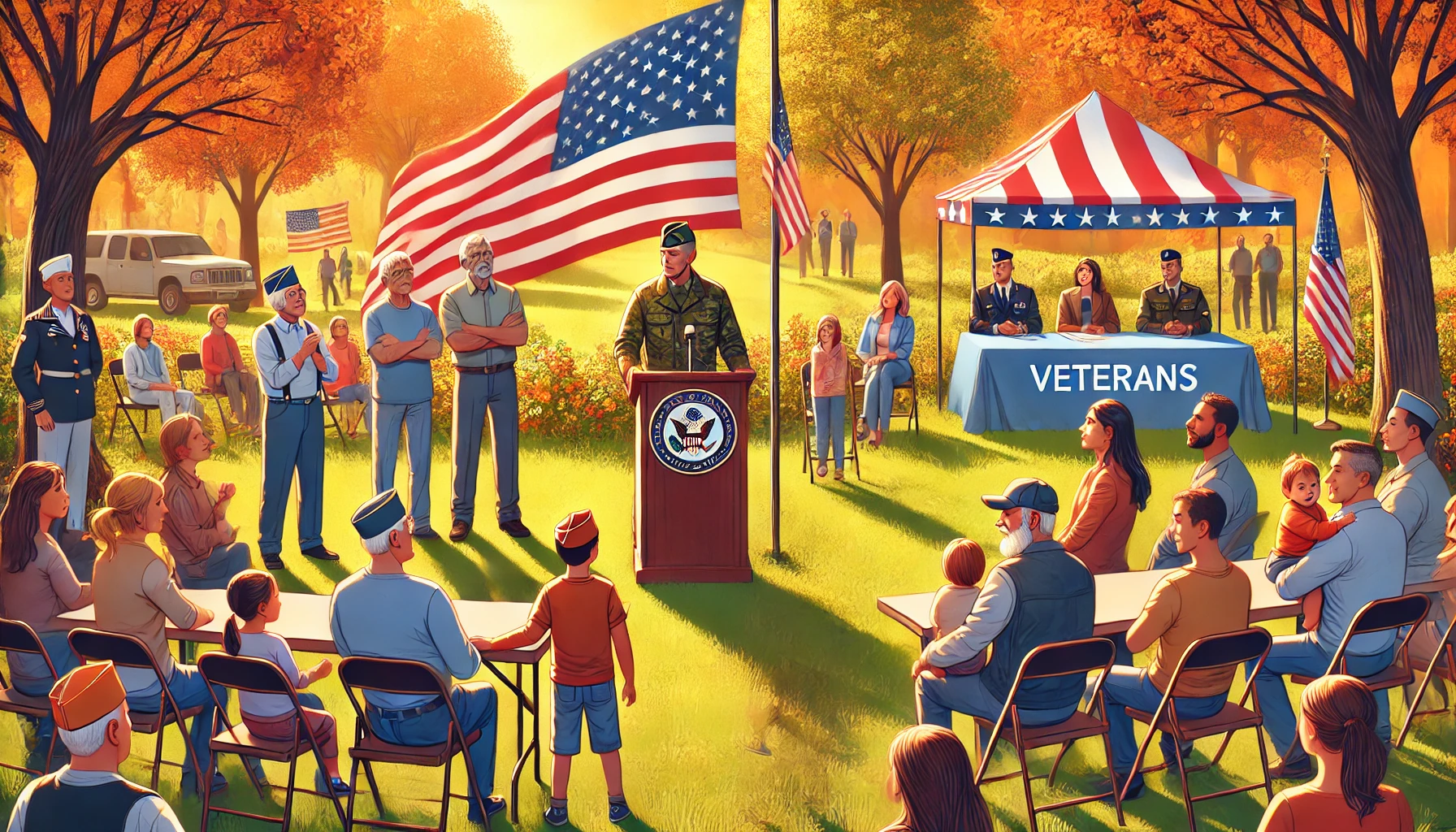Veterans have served their country with courage and dedication, often making sacrifices that most of us can hardly imagine. However, once their service ends, many veterans face challenges such as reintegrating into civilian life, finding employment, accessing healthcare, or dealing with mental health issues like PTSD. These challenges are not just personal struggles—they’re societal responsibilities that call for collective action.
Being a voice for veterans means advocating for their needs, raising awareness about their struggles, and supporting them in ways that make a tangible difference. Whether you’re a civilian, a fellow veteran, or part of an organization, you can play a role in ensuring veterans receive the support and recognition they deserve. Here’s how.
1. Educate Yourself About Veterans’ Issues
The first step in being a voice for veterans is understanding their challenges. Common issues include:
• Difficulty transitioning to civilian life.
• High rates of unemployment or underemployment.
• Mental health concerns like PTSD and depression.
• Homelessness among veterans, which remains a persistent issue.
• Navigating complex VA benefits and healthcare systems.
Take time to research these topics. Familiarize yourself with local, state, and national programs designed to support veterans, as well as where gaps in those programs exist. Being informed allows you to speak with authority and empathy when advocating for veterans.
2. Support Veteran-Focused Organizations
Many organizations work tirelessly to support veterans and their families. You can help amplify their impact by:
• Volunteering: Offer your time to organizations like the Wounded Warrior Project, Team Rubicon, or local veteran assistance groups. Whether it’s mentoring veterans, participating in community cleanups, or helping organize events, your time can make a difference.
• Donating: Financial contributions help these organizations continue their vital work. If you can, consider setting up a recurring donation to support long-term initiatives.
• Promoting Their Work: Use your platform to raise awareness of their missions and encourage others to get involved.
3. Raise Awareness in Your Community
Veterans’ issues are often underrepresented in public discourse. You can help change that by:
• Sharing veterans’ stories on social media, focusing on their strengths, contributions, and needs.
• Organizing community events like fundraisers, workshops, or speaker panels that highlight veterans’ experiences and advocate for their support.
• Collaborating with local schools, libraries, or businesses to host events during Veterans Day or Military Appreciation Month to bring attention to their sacrifices and accomplishments.
By keeping the conversation alive, you help ensure veterans remain a priority in your community.
4. Advocate for Policy Change
Systemic change happens when citizens push for it. Advocate for policies that directly benefit veterans, such as:
• Improved access to VA healthcare.
• Increased funding for mental health programs.
• Better job placement and training opportunities for transitioning service members.
• Housing assistance programs to address veteran homelessness.
Reach out to local and national lawmakers, attend town halls, and sign petitions to support legislation that benefits veterans. Your voice, combined with others, can influence meaningful change.
5. Connect Veterans with Resources
Many veterans are unaware of the resources available to them. You can help bridge this gap by:
• Directing them to VA services or local organizations that specialize in veteran support.
• Sharing information about job fairs, education grants, or housing assistance programs.
• Offering to assist with paperwork or navigating complex systems, such as applying for VA benefits.
A simple act of guidance can have a profound impact on a veteran’s life.
6. Foster a Veteran-Friendly Community
Communities that actively support veterans create a ripple effect of positivity. You can contribute by:
• Encouraging local businesses to hire veterans and recognize their unique skills.
• Supporting veteran-owned businesses by shopping with them and spreading the word about their services.
• Participating in or organizing events that honor veterans, such as parades, community cleanups, or military appreciation days.
When veterans feel welcomed and valued, their sense of belonging and purpose is reinforced.
7. Listen to Veterans’ Stories
Sometimes, the best way to be a voice for veterans is to listen. By providing a space where veterans feel comfortable sharing their experiences, you:
• Help reduce the stigma surrounding mental health issues.
• Gain a deeper understanding of the unique challenges they face.
• Create an opportunity for others to learn from and appreciate their stories.
Amplify their voices by sharing their stories (with permission) to inspire others and raise awareness.
8. Celebrate Veterans’ Contributions
Veterans bring unparalleled skills, leadership, and resilience to their communities. Highlight their successes by:
• Sharing stories of veteran entrepreneurs, artists, or community leaders.
• Advocating for their inclusion in leadership roles within businesses and organizations.
• Recognizing their accomplishments during events or on public platforms.
Celebrating veterans not only honors their service but also shifts the narrative toward their potential and contributions post-service.
9. Engage the Next Generation
The future of veteran support depends on educating younger generations. Encourage schools to:
• Incorporate veterans’ history into their curriculum.
• Invite veterans to speak about their experiences and service.
• Organize student-led projects to support local veterans, such as care package drives or fundraising events.
Engaging youth ensures that the sacrifices of veterans are never forgotten.
10. Show Gratitude Every Day
Sometimes, the simplest acts of kindness have the most profound impact. A heartfelt “thank you for your service” can mean the world to a veteran. Small gestures like sending care packages, writing letters of appreciation, or even supporting veteran-focused campaigns during holidays can help veterans feel valued and appreciated.
Final Thoughts
Being a voice for veterans is about more than advocacy—it’s about action, education, and compassion. Veterans have given so much to protect and serve our country; now it’s our turn to support them in meaningful ways. Whether you choose to raise awareness, volunteer, or advocate for policy changes, your efforts can make a real difference.
By standing together and speaking up, we can ensure that no veteran feels forgotten or unsupported. Let’s honor their service by being the voice they need.
1. Veteran Assistance Organizations
• Veterans Affairs (VA) – Official website for healthcare, benefits, and resources.
• Wounded Warrior Project – Support for wounded veterans and their families.
• Team Rubicon – Disaster response organization that utilizes veterans’ skills.
2. Mental Health Support
• Veterans Crisis Line – Immediate help for veterans in crisis.
• Give an Hour – Free mental health services for veterans.
3. Job and Career Resources
• Hire Heroes USA – Career coaching and job placement for veterans.
• VetJobs – Job board specifically for veterans.
4. Advocacy and Policy Change
• IAVA (Iraq and Afghanistan Veterans of America) – Advocacy organization focused on post-9/11 veterans.
• DAV (Disabled American Veterans) – Legislative advocacy and services for disabled veterans.
5. **Community In
Discover more from Inside the mind of Wade
Subscribe to get the latest posts sent to your email.



